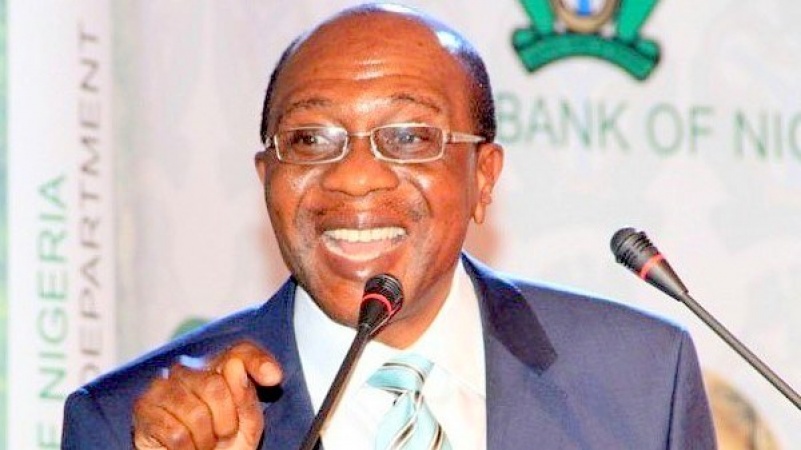Nigeria’s Central Bank Governor, Mr. Godwin Emefiele, on Monday lamented the unprecedented rate of oil theft recorded in recent times and its debilitating effect on government revenue and accretion to reserves. The CBN Governor made the disclosure while briefing journalists at the end of the Monetary Policy Committee (MPC) meeting in Abuja.
After MPC meeting, the second in 2022, the CBN resolved to retain the Monetary Policy Rate (MPR), otherwise known as the interest rate, at 11.5 per cent with the asymmetric corridor of +100/-700 basis points around the MPR.
But Emefiele urged the Nigerian National Petroleum Company (NNPC) to take urgent steps to ensure adequate supply of petroleum products in the country to reduce the rate of arbitrary increase in price of these petroleum products by oil marketers.

Mr Tony Elumelu, top player in oil and gas sector
The CBN governor’s comment came a day after the former Chief Executive Officer of Seplat Energy Plc, Mr. Austin Avuru, also expressed similar concern and even went ahead to call for a state of emergency in the Nigerian oil and gas sector. Avuru had declared that up to 80 per cent of oil pumped in the country, particularly in the East, is stolen.
Avuru spoke few days after a businessman and Chairman Heirs Holdings, Mr. Tony Elumelu, also bemoaned the worsening state of the industry, stressing that about 95 per cent of oil production does not get to the terminal. Elumelu has his oil assets in the Niger Delta. Just about a week ago, Aiteo Eastern Exploration and Production Company (AEEPCO), operators of the Nembe Creek Trunk Line (NCTL) pipeline, threatened to exit the facility due to incessant vandalism, perennial sabotage and outright theft.
The company stated, “AEEPCO remains gravely concerned about the persistent heightened attack on our production facilities and the NCTL. These attacks appear to have escalated in intensity and effect. All our current efforts to sustain and increase crude production are being aggressively undermined, even wiped out by the activities of economic saboteurs whose audacity continues to be growing by the day.”
Aiteo disclosed that its NCTL had been targeted, with considerable success, for the sole and devastating objective of aiding crude theft. The company stated that given the level of losses, occasioned by massive oil theft, it was experiencing, as joint operator of the NNPC/AITEO JV, it was now left with the unavoidable option of actualising a total exit from the NCTL.
“We are giving active and urgent consideration to this course of action because the consequences of continuing to operate in this manner now represents an existential threat to our survival,” the firm stated.
The CBN also left other monetary policy parameters unchanged, namely the Cash Reserve Ratio (CRR) at 27.5 per cent and Liquidity Ratio at 30 per cent. MPR is the rate at which the CBN lends to commercial banks and it often determines the cost of borrowing in the economy. The MPC also voted to maintain CRR at 27.5 per cent as well as the Liquidity Ratio at 30 per cent.
The CBN governor said six out of the 10 MPC members present voted to retain monetary parameters, adding that while loosening could trigger liquidity surfeit in the system, a tightening stance would impact the fragile recovery of the economy, reverse credit expansion and yet, fall short of taming inflation. Emefiele, who read the committee’s communiqué, however expressed worry that whereas global oil prices had gone up, this had been compounded by shortage of supply of petroleum products.
The CBN also expressed optimism that in the medium term, the proposed take-off of the Dangote refinery this year, would help to improve the supply of petroleum products in the country. Emefiele said the CBN remained optimistic that food prices would trend downwards in 2022 as security agencies sustain efforts to subdue the activities of bandits so as to allow farmers back to their farmers.
He said, “And now what we are saying is that if farmers are able to access their farms, do they have the wherewithal to procure the inputs, seeds, fertilizer and other inputs with which they can go back to the farm and farm? We are making all those available. And that is why we still remain reasonably optimistic that food prices would moderate in 2022.”





